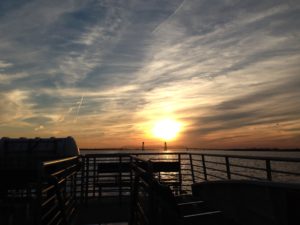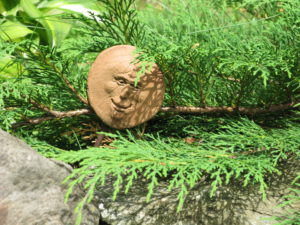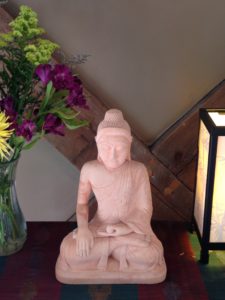 This is another blog post in what has become a Cancer Trilogy and the most difficult of them to write. What helped me to finally step into this realm was a quote by Larry Rosenberg, the American Buddhist teacher who founded Cambridge Insight Meditation Center in Massachusetts. “We harbor a huge amount of unfelt fear about sickness, aging and death, and that fear robs us of vitality, partly because we expend so much energy avoiding and repressing it. Bringing up this fear and facing it [—] is a great enhancement to our lives.”
This is another blog post in what has become a Cancer Trilogy and the most difficult of them to write. What helped me to finally step into this realm was a quote by Larry Rosenberg, the American Buddhist teacher who founded Cambridge Insight Meditation Center in Massachusetts. “We harbor a huge amount of unfelt fear about sickness, aging and death, and that fear robs us of vitality, partly because we expend so much energy avoiding and repressing it. Bringing up this fear and facing it [—] is a great enhancement to our lives.”
There are many lessons to be had about impermanence. I’m not talking about day to day changes or even shifts in the larger circumstances of our lives. I mean the Big Impermanence – the final shift away from what we know. Or at least from what we think we know.
Often I believe when we experience events on the continuum of sickness, aging and death, we see ourselves as victims. It may seem that there is no other option, however, there is some choice in this. Being a victim takes away not only a sense of responsibility but causes us to collapse in on ourselves. It’s often a place from which the seeds of anger and bitterness can easily grow. When early on I shared my cancer diagnosis with others, many times the response was to suggest that what I must be feeling inside was, “Why me?” And I would find myself thinking in return, “Why not me?” Did I really believe that I wouldn’t get sick or old or die? While it may not have been part of my plans for the near future, I might have figured that, at some point, one or all would certainly show up.
What we generally feel in that experience is a form of shock that takes us out of our mode of business-as-usual. Facing unknowns has us then falling from the shock platform into anger or fear, both of which revolve around wanting our situation to be different. If there is no one to blame for what’s happened to us, no answer to the question “Why me?,” then we are left with the fear.
Fear is a slippery creature. Even when you check in with the bodily sensations that accompany it, assigning the label “fear” to what you notice can be scary. In our culture we are supposed to handle fear, push through it or close the door on it – turn the energy of fear into productive action. Even those who exhort us to turn and face the fear generally seem to assume that we will power over it. They don’t actually mean to invite fear in and give it a seat at the table.
Yet that is exactly what we must do. Fear is a part of who we are, like it or not, so why not get to know it better. Especially if fear is the lens through which we anticipate the changes that accompany old age, sickness and particularly death. In these instances, fear is the inhibitor who clings to the way things were. The stronger the fear, the more enticing is the desire to hold on to what was. So how do you let go and allow the shift into what’s happening now?
How do you open to fear without being attached to or overpowered by it? I believe the only way to open sufficiently is to turn away from the judgments about what’s happening and and allow compassion to hold the fear. Compassion has a steadying influence when we face the unknown and when that door leads beyond aging and illness to the possibility of death.
I find the more I allow fear to sit beside me, the more I can see past the fright to the point where what I receive are in fact gifts and opportunities. Qualities of richness are present and a chance for me to be fully who I can be at this point on my path toward the Big Impermanence. And that makes me smile.


